75 Years: Victory in the Pacific Day Digital Stories and Oral Histories – Childhood at War
By India Dixon, Librarian, Queensland Memory | 14 May 2021
With the passing of the 75th Anniversary of Victory in the Pacific, State Library has focused upon capturing the variety of experiences that Queenslanders faced on the Homefront as well as in the armed forces. The extraordinary circumstances of World War Two had a profound impact on the childhoods of a whole generation, and their memories of the war and the announcement of peace are a fascinating lens through which to view this momentous event in recent history.
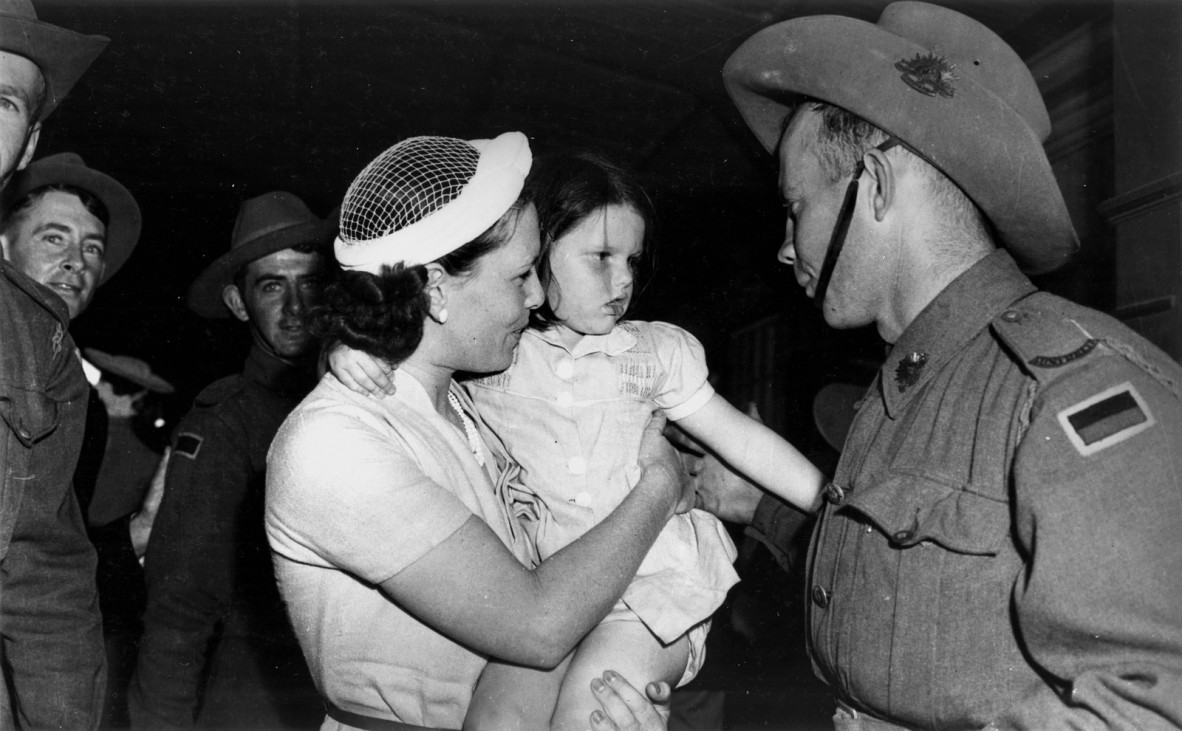
Troops at the railway station, Brisbane, ca. 1942. Negative number 195066, John Oxley Library, State Library of Queensland.
On August 15, 1945, the Japanese declared their surrender in the wake of two nuclear detonations over Hiroshima and Nagasaki. For Queenslanders, the Allied victory represented the end of a six-year long ordeal, during which loved ones risked their lives for their country, and the threat of foreign invasion was always present in the public’s mind. With the announcement of peace came enormous victory parades, the demobilisation and return of thousands of soldiers and prisoners of war, the release of wartime Interns from camps, the departure of American troops and their fleets of Australian war brides, and the relief of a nation weary from war. For an entire generation of Queenslanders, childhoods were plagued with the absence of their older brothers, their fathers, and their uncles, and a strange new ‘normal’ was established.
John Carr shared his memories of Southport on the day that victory was announced, and the celebrations that ensued. His tales of the mail man yelling in the morning air “The war is over! The war is over!” and of singers performing in the open streets, where traffic was brought to a standstill
by crowds of ecstatic revellers, evoke a sense of the joy and the relief experienced by all war-weary Queenslanders.
He also shared the notable experience of boarding the USS Clark when it was docked in Queensland.
I went with my sister,” he recalls, “and the sailors lifted me aboard and took me on a tour.
He still had the matchbook given to him by sailors to commemorate the day.
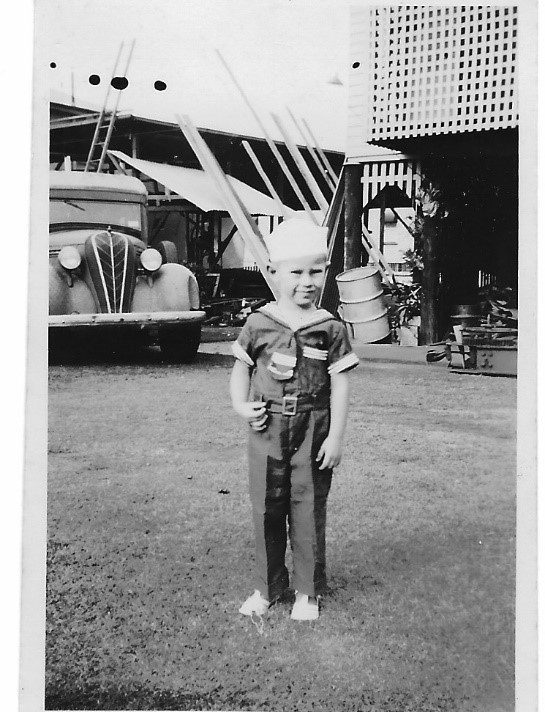
John Carr in his navy sailor suit, circa. 1941.
Photograph from the Childhood at war : oral history with John Carr., 75 Years: Victory in the Pacific digital Stories and oral histories, Mount Nebo Multimedia, 2020, John Oxley Library, State Library of Queensland.
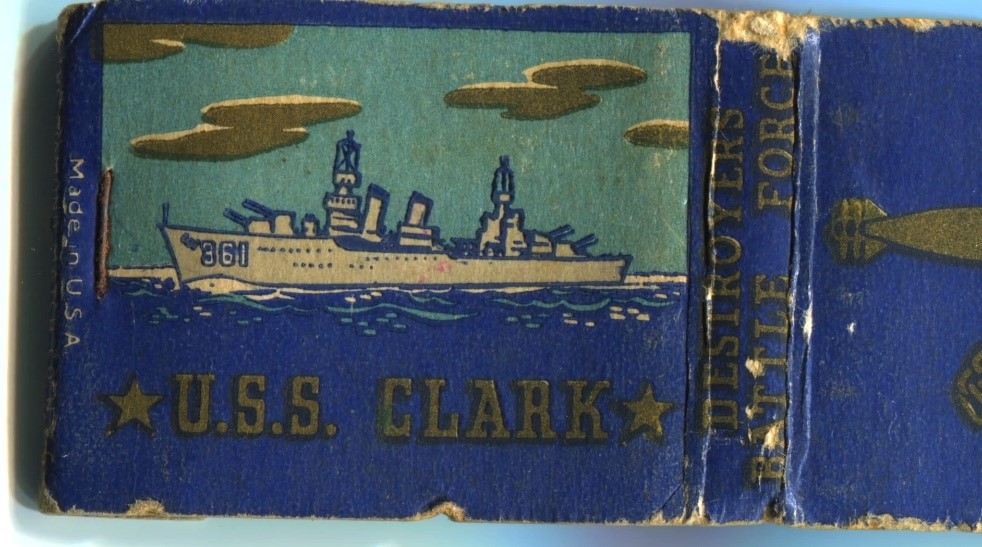
Matchbook from the USS Clark, toured by John Carr
Photograph from the Childhood at war : oral history with John Carr., 75 Years: Victory in the Pacific digital Stories and oral histories, Mount Nebo Multimedia, 2020, John Oxley Library, State Library of Queensland.
Ron Rees discussed his experiences with the American soldiers at the military base near Slaughter Falls. He described them interacting with the local children, who would walk past the base on their way to school, and giving them rations and luxury items as gifts.
I had never tasted chocolate before, he laughs. Never seen anyone smoke a cigar before either.
It is estimated that over 1 million American soldiers were stationed in Australia over the course of the war, a major contingent of which were posted to large bases and camps in Brisbane, Townsville, and Rockhampton. The presence of these soldiers in Queensland had a significant impact on the cultural and social climate of the time.
Rees’s interactions with the American soldiers weren’t limited to the Slaughter Falls base. Rees claims to have briefly met General Douglas MacArthur during his time, an event that had a profound impact upon him as a child. In the schoolyard, Ronald and his friends would practice their aim with slingshots and assure their teachers that they would be ‘ready to defend’ the school if a Japanese invasion came. Schools across Queensland were required to prepare for the event of an enemy attack, with slit trenches dug into the schoolyards and frequent air raid drills run to prepare students for any eventuality.
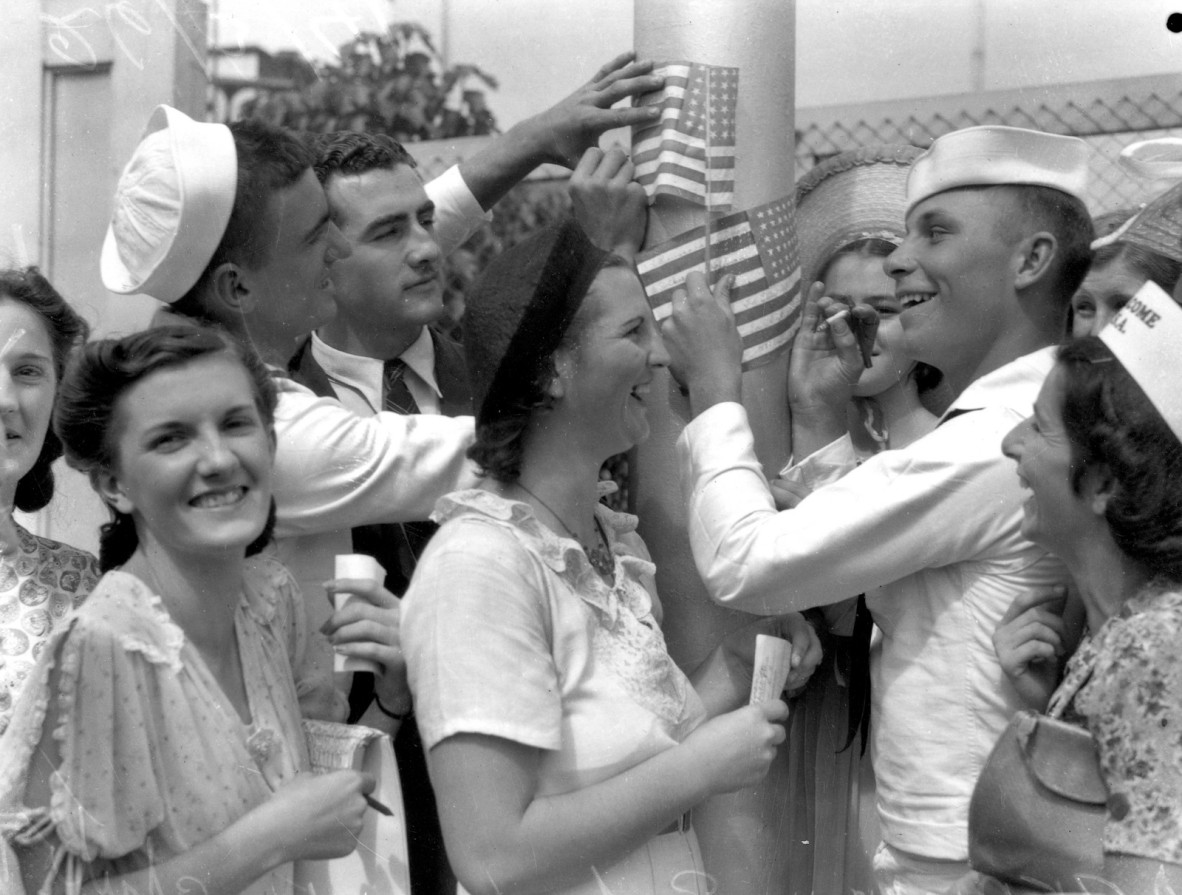
Women with visiting American sailors, Brisbane, Queensland, 1941. Negative number 104176, John Oxley Library, State Library of Queensland.
Despite many scout masters leaving to serve in the war, the boys in Ronald’s neighbourhood maintained a makeshift scouts program on their own, with the older children taking care of the younger children. His memories of trekking out at night to watch over a Brisbane skyline in full blackout are stirring.
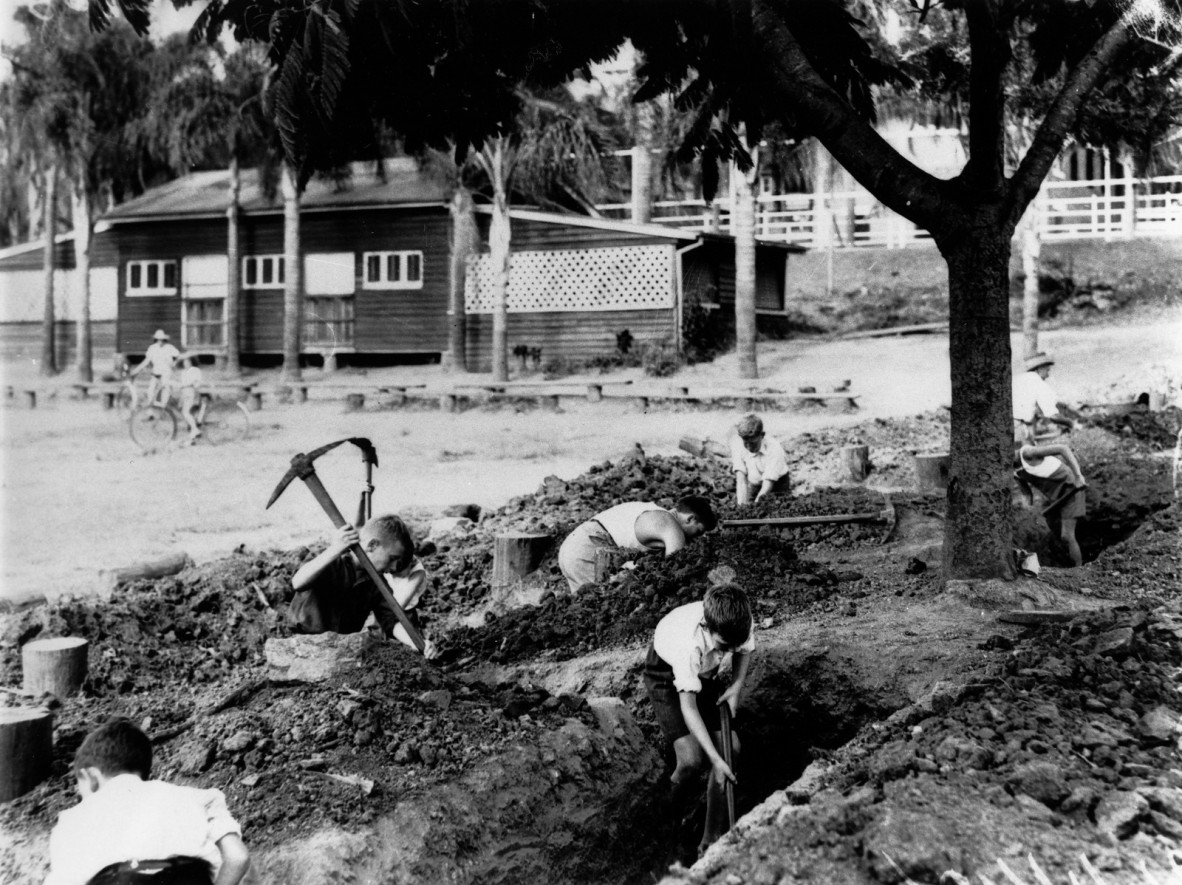
Children digging trenches at Ascot State School, Brisbane, 1942. School children digging air raid trenches at the Ascot State School, on the 24 January, 1942. A classroom building is visible in the background. Children are using picks and various other tools to dig the trenches during World War Two.
Negative number 42866, John Oxley Library, State Library of Queensland.
You can view the Childhood at War, John Carr and Ronald Ree's digital stories below:
Childhood at war digital story, 75 Years: Victory in the Pacific digital Stories and oral histories, Mount Nebo Multimedia, 2020, John Oxley Library, State Library of Queensland.
Childhood at war : oral history with John Carr, 75 Years: Victory in the Pacific digital Stories and oral histories, Mount Nebo Multimedia, 2020, John Oxley Library, State Library of Queensland.
Childhood at war : oral history with Ron Rees, 75 Years: Victory in the Pacific digital Stories and oral histories, Mount Nebo Multimedia, 2020, John Oxley Library, State Library of Queensland.
This activity was funded under the Commonwealth Government’s Saluting Their Service Commemorative Grants Program. Proudly supported by the Queensland Government.
View the catalogue record for the digital story
- Childhood at war digital story
- Childhood at war : oral history with John Carr
- Childhood at war : oral history with Ron Rees
View other similar digital stories from the collection
View, comment or contribute your own Victory in the Pacific stories and photographs with Explorer
-
Explorer set: Victory In The Pacific Day
Comments
Your email address will not be published.
We welcome relevant, respectful comments.